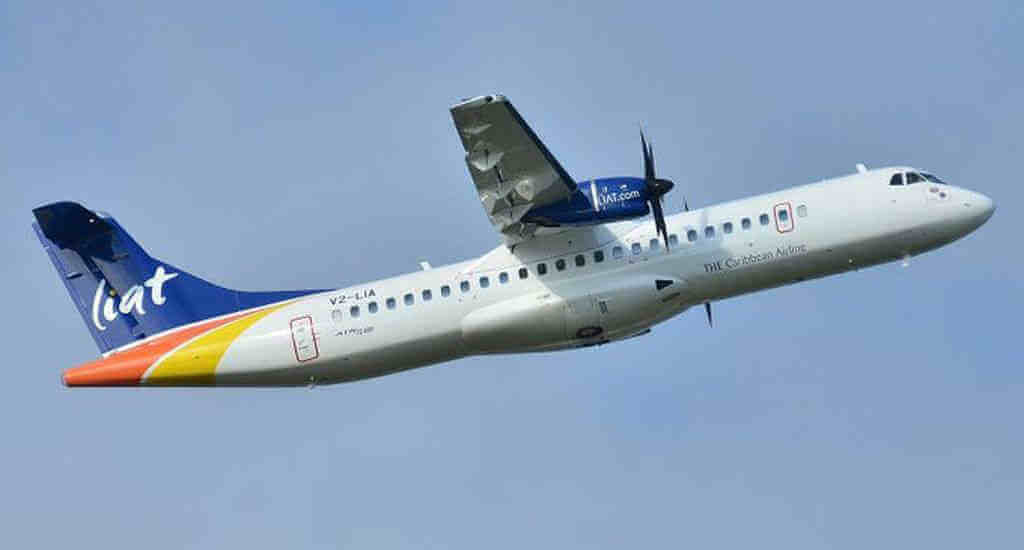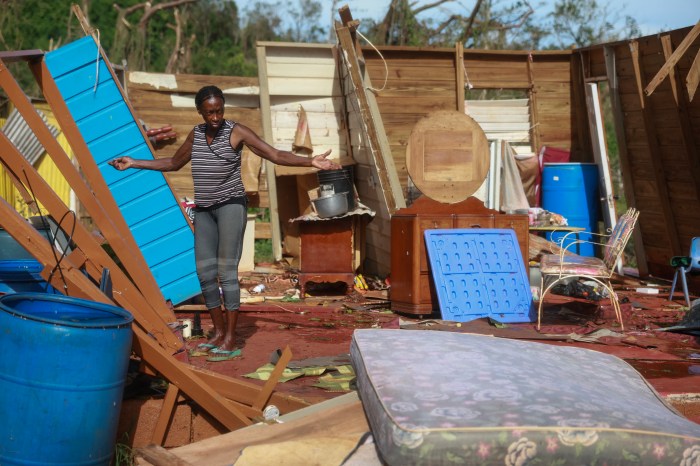Antigua
Antigua-based regional airline LIAT said it would continue to suspend commercial passenger services until June 30 due to the continued impact of the coronavirus pandemic.
LIAT’s Chief Executive Officer, Julie Reifer-Jones said that most of the airline’s network remains closed to commercial passenger traffic. She said while some territories have announced a reopening date, there are still many protocols to be implemented, such as testing and mandatory quarantine periods, which will allow for the safe movement of passengers.
She said the airline is closely monitoring the situation across the LIAT network and will resume flights when it is safe for passengers to do so.
LIAT, whose main shareholders are the governments of Antigua and Barbuda, Barbados, Dominica, Grenada and St. Vincent and the Grenadines, serves 15 destinations across the Caribbean.
The cash-strapped airline said that passengers booked during the extended period of suspension will automatically have their bookings canceled and will receive full airline credit for future travel.
Bahamas
The Bahamas government is set to reopen its borders on July 1 in which many new policies, safety measures and precautions will be introduced to ensure he continued health and well-being of citizens and visitors.
Minister for Tourism and Aviation, Dionisio D’Aguliar said since March 24, airports and seaports throughout The Bahamas have been closed to all incoming visitors, adding that given that the Bahamian economy relies heavily on the tourism sector, the decision was not made lightly.
He said travel and tourism will be markedly different from what it was prior to Covid-19 and that readying The Bahamas for tourism in the post-COVID world “is quite complicated with many nuances and considerations to plan for.”
The Tourism Readiness and Recovery Committee was established to develop a collaborative plan for reopening and to provide health and safety guidelines to be followed consistently across the country.
D’Aguliar said Phase One is expected to see the opening of the tourism sector with the return of boaters, yachters, and private aviation being allowed to enter the destination.
He also said during that phase commercial airlines will be allowed to bring in Bahamian citizens, legal residents, home owners qualifying for economic permanent resident, or the immediate family members or significant others of any of these groups.
The tourism and aviation minister said the phase one opening of the tourism sector is intended to test the market and serve as a transition to the phase two opening on July 1, as well as test the efficiency of the new protocols that are entailed in this plan.
Barbados
Barbados said while its international airport remains closed to commercial traffic until June 30, this is not a guaranteed date for when airlines will resume flying to the island.
Minister for Tourism and International Transport, Kerrie Symmonds said he cannot give a date on which airlines will be returning.
“We have taken a position that the airport remains closed to commercial traffic until June 30th,” he said.
Symmonds said safety is a priority for Barbados and any decision taken to reopen the sector will “not be date-driven, but rather data driven.”
Noting that regional protocols were also being examined, he said, officials were looking at criteria with regard to the date, managing risk and safety protocols.
These include possibly a COVID-19 rapid test, which could be conducted on departure from the source market, on arrival in Barbados or at both points if costs allow.
The Tourism Minister said temperature testing and prior knowledge of travel history would be required, so that as much as possible persons exhibiting symptoms could be “sieved out.”
Protocols were also needed for the appropriate levels of quarantine space for persons eventually test positive.
Guyana
The Guyana Elections Commission (GECOM) says it will be ready to make a final declaration of the disputed March 2, general election by June 16, three days after the ongoing national recount of the ballots comes to an end.
An addendum to the national recount to the May 4 Order was recently published and gazette.
It states the commission will give the Chief Elections Officer, Keith Lowenfield on or before the new recount deadline to submit his report, containing the tabulation of the 10 electoral districts and the observation reports of each of those districts to the elections body.
Commissioner Vincent Alexander said that having received the reports, GECOM will deliberate, after which Lowenfield will be advised to make a final submission.
GECOM had undertaken the recount of the ballots cast after both the ruling coalition, A Partnership for National Unity (APNU) and the main opposition People’s Progressive Party /Civic (PPP/C) had claimed victory in the polls. The recount is being observed by a three-member high-level team from the Caribbean Community (CARICOM).
Jamaica:
The COVID-19 Task Economic Recover Task Force is recommending the relaxation of measures related to border closure in Jamaica amid concerns that the island’s economy could contract by as much as 14 percent for the three-month period April to June this year.
It said the relaxation of the measures, which had been put in place since March as a result of the efforts to curb the spread of the coronavirus could include “the phased reopening of international airports, first to Jamaicans who wish to return, and then to others under ‘new normal’ procedures at all times consistent with public health guidelines.”
The task force said that all Jamaicans have an interest in the country’s economic recovery and public health safety and that these are not mutually exclusive objectives but, rather, they are complementary imperatives.
“The path to economic recovery will not be quick, but it should begin now while observing appropriate health protocols,” it said.
It noted that Jamaica is a very open economy and that trade in goods and services accounts for approximately 80 percent of gross domestic product (GDP).
St. Lucia
The St. Lucia Archaeological and Historical Society (SLASH) and the Folk Research Center (FRC) have condemned the decision by the Allen Chastanet government to demolish the building that once housed a prison built in 1892.
In a statement, the two organizations said that they stood in solidarity with the St. Lucia National Trust (SLNT) in its efforts to protect “St. Lucia’s patrimony and share its disappointment and pain over the senseless demolition of the Royal Gaol.”
“We are saddened by the government’s refusal to abide by its agreement with the Trust and its partners to integrate the Royal Gaol into the proposed Halls of Justice, like the Trust we support a project which is designed to bring much needed relief to the police service and enhance the criminal justice system,” SLASH said.
Chastanet argued that these concerns had been brought up by previous administrations, insisting “the poor working conditions which our police officers endure on a daily basis have often been cited as one of the major factors affecting the moral and efficient functioning of our security and justice systems.”
Chastanet said in October 2018,”we commenced the preparations of the site for the construction of a new police headquarters which will strategically include six courtroom to centralize the judicial system as well as for security purposes. This was delayed for one year and six months due to an injunction, which was filed.”
Trinidad
Trinidad and Tobago has issues of racism, said Prime Minister Dr Keith Rowley, but he hoped the country can learn from what is happening to the US and other places that were reacting to the police killings of an African American man.
Dr. Rowley compared the Black Lives Matter movement to the 1970 Black Power Movement where the conversation of racism reached T&T from Canada, and young people marched on the streets, forcing the government to respond.
He said T&T should not distance itself from what was happening in the US. He said while T&T and the Caribbean were multi-racial, multi-ethnic and multi-cultural “we too have the perils of what we are seeing in North America.”
Rowley acknowledged that over the years people have tried to get away from “the horrors” of racism, “subscribe to a higher calling” and accept that everyone was God’s people and had inherent rights. However, he said, the fight for those rights was a continuous one, adding here in T&T “we too have our issues of racism.”
— Compiled by Azad Ali
























